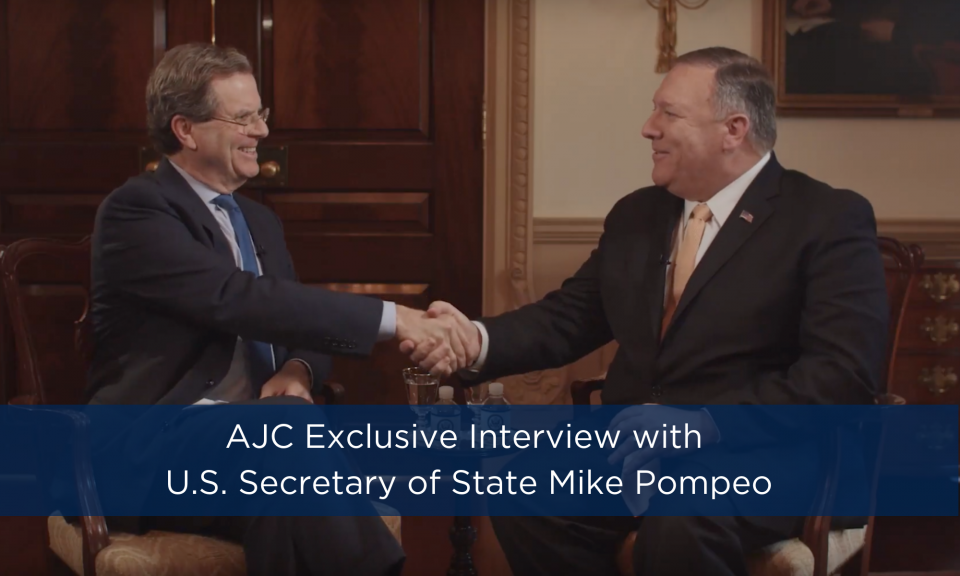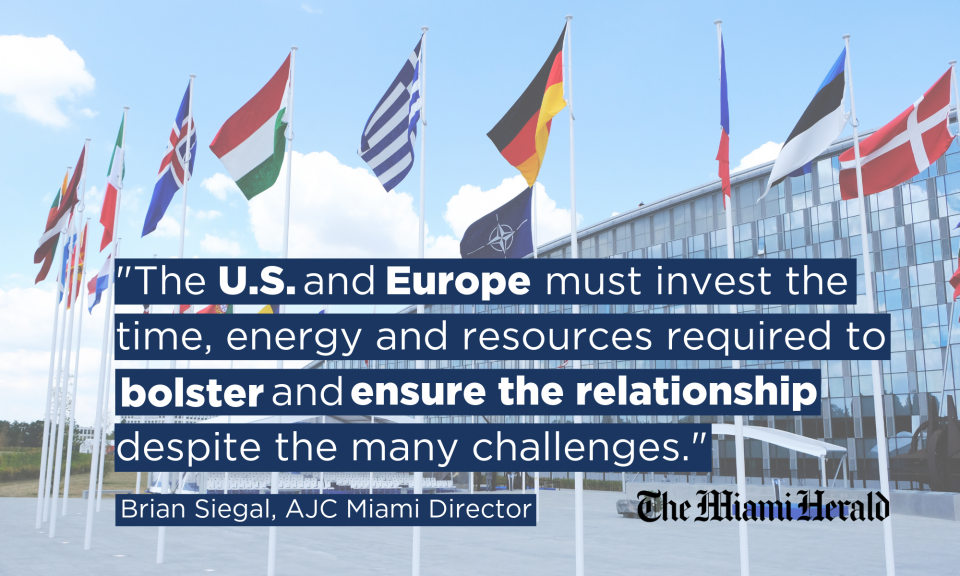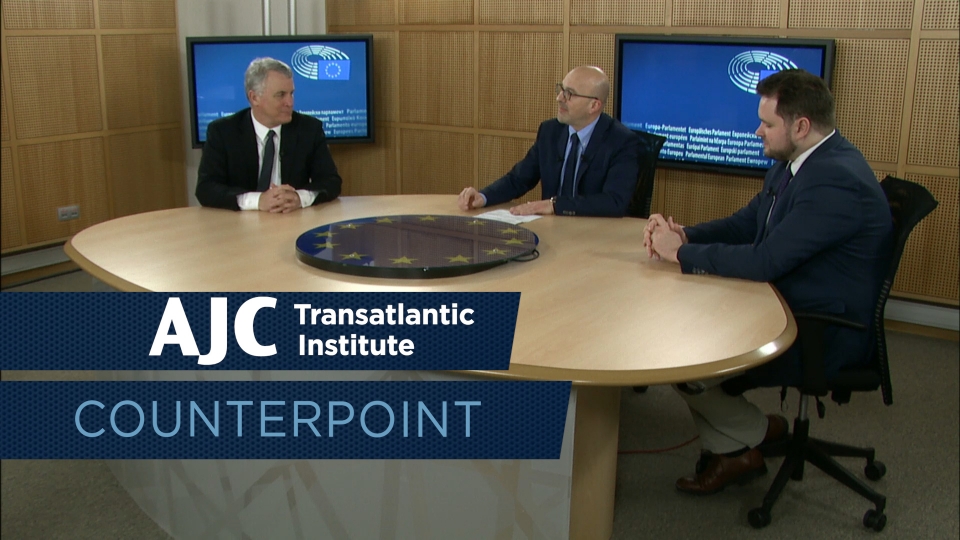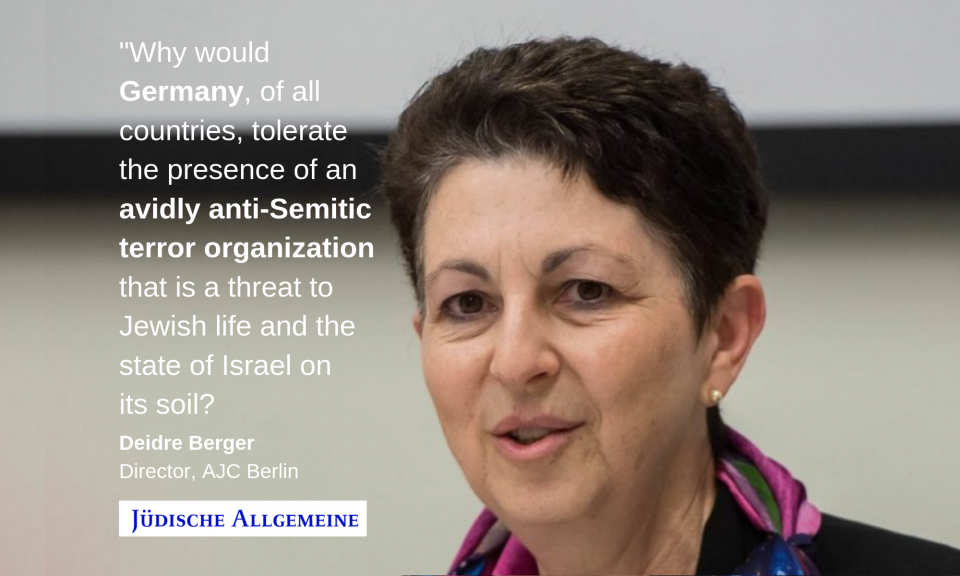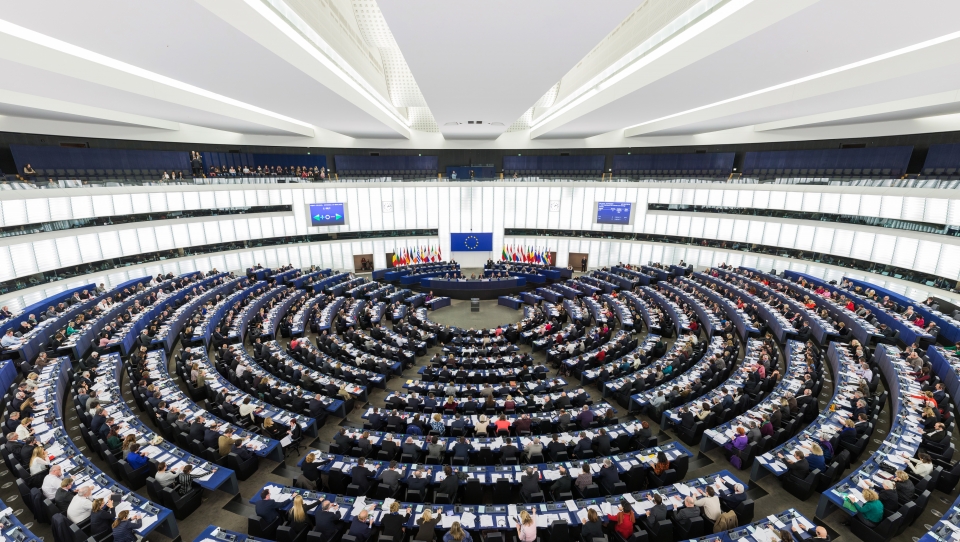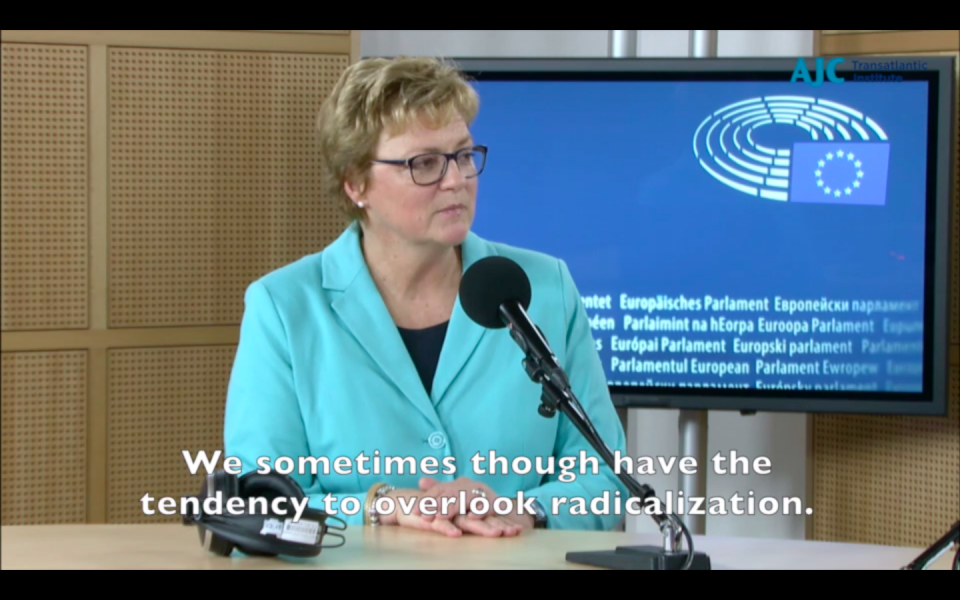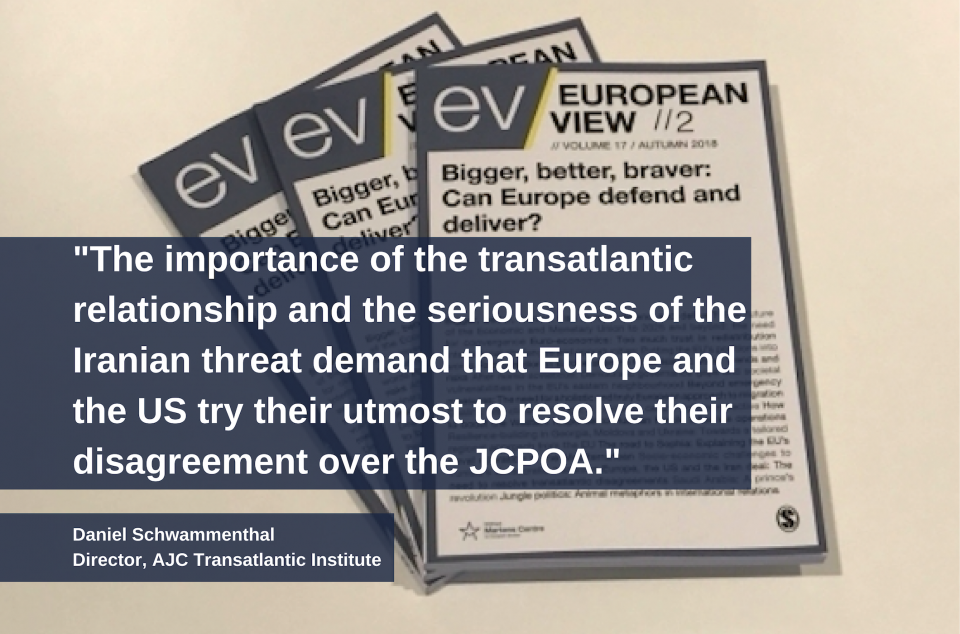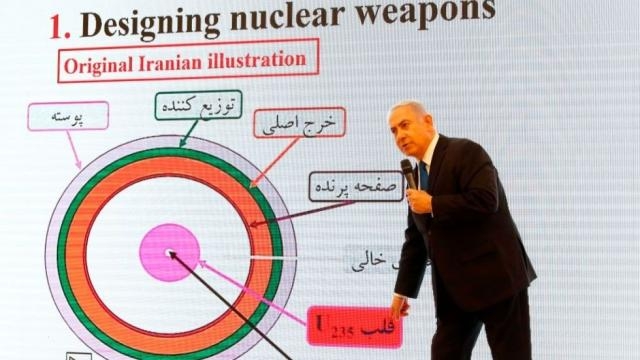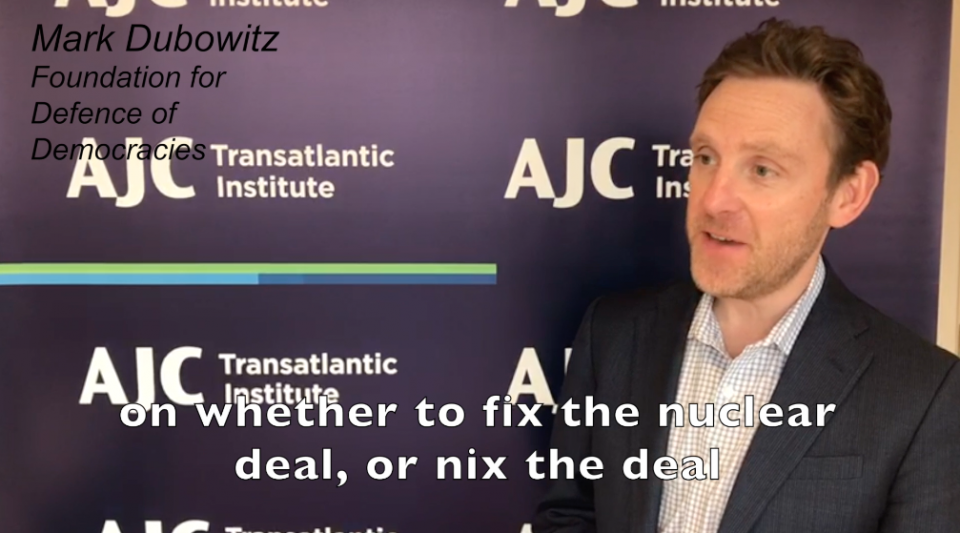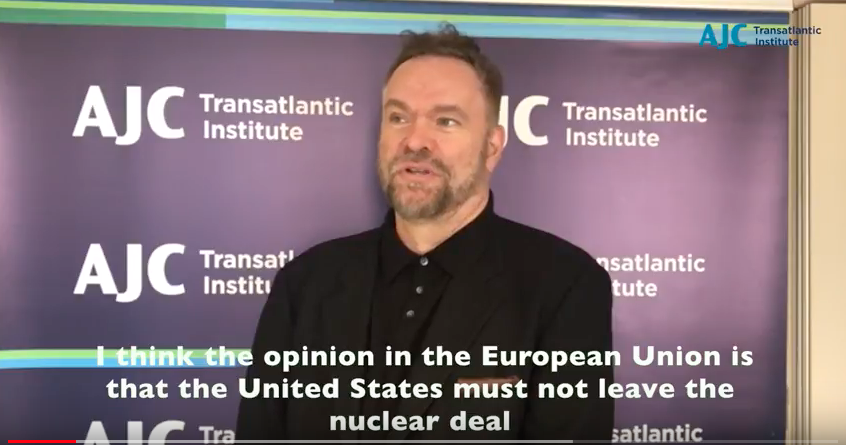Analysis
Brussels's Hezbollah Excuses Are Running Out
By Daniel Schwammenthal
The Wall Street Journal Europe
The Bulgarian investigation into last July's terrorist attack against Israeli tourists in Burgas points squarely at Hezbollah. Surely, with the report's release this week, the European Union must finally do the right thing and add the Lebanese group to its terror list. Think again.
"There is no automatic listing just because you have been behind a terrorist attack," EU Counterterrorism Coordinator Gilles de Kerchove told EUobserver last week, in anticipation of the report. "As always in the listing process, you need to ask yourself: 'Is this the right thing to do?'" he said. Pardon my naiveté, but how could it possibly be the wrong thing to do?
Over the past 30 years, the "Party of God" has murdered hundreds of people around the world and therefore has long belonged on the EU's terror list. But let's for a moment pretend we are all hard-nosed realists. What sorts of interests could possibly trump the need to ban a terror group whose ideology is steeped in anti-Semitism? European governments may want to avoid retaliation. "There's the overall fear if we're too noisy about this, Hezbollah might strike again, and it might not be Israeli tourists this time," Sylke Tempel, editor-in-chief of the German foreign affairs magazine Internationale Politik, told the New York Times recently. Ms. Tempel's analysis is a sign of the new normal in the EU-Hezbollah relationship.
In recent years the terror group has been able to raise funds, recruit new members and even send operatives from Europe to Israel for attacks there, but refrained from carrying out attacks in Europe. Leaving the Burgas bombing unsanctioned would send the message, intended or not, that it is OK to carry out terror attacks, even in Europe—as long as the victims are Israelis. But such cynical calculations overlook that the past summer's bombing already killed one EU citizen, a Bulgarian bus driver. Europe's antiterror policy can't possibly be based on the hope that Hezbollah will better calibrate its future attacks on Israelis to avoid hurting European bystanders.
Winston Churchill's old adage about the crocodile and the appeaser comes to mind. In this case, however, the Europeans wouldn't be eaten last—they were among Hezbollah's first victims. The Lebanese terror group emerged on the scene back in 1983 when it killed 58 French peacekeepers and 241 U.S. Marines in their Beirut barracks. Another EU concern is that Hezbollah is also a political party and part of the Lebanese government. This means that once they list it, EU officials could no longer talk to Hezbollah, that they would lose access. But access for what purpose? There is no evidence that decades of European contacts with Hezbollah have in any way moderated the group.
This brings us to the EU's other worry—that listing Hezbollah could "destabilize" Lebanon. But is this sort of realpolitik really rooted in reality? It assumes that a government controlled by a terror group that has bombed itself into this position of power and is financed by and beholden to Iran, is the best government Lebanon can possibly hope for. Many Lebanese would probably disagree, including the family of former Prime Minister Rafik Hariri, assassinated by Hezbollah in 2005.
Hezbollah is actually the single most destabilizing factor in Lebanon, constituting a state within a state, with its own army. After the last disastrous war with Israel in 2006, Hezbollah has rearmed far beyond its original capacities. Israeli officials now believe it has received about 60,000 missiles from its Iranian patrons. The group is using Lebanon's population as human shields by hiding weapons in or near residential structures. An unchecked Hezbollah is more likely to trigger another confrontation with Israel, this time probably even costlier.
Furthermore, Hezbollah is intervening in Syria and threatening to drag Lebanon into a conflict with yet another neighboring country. The organization's support for the Assad regime is, by itself, reason to blacklist it. The EU has already sanctioned individuals and entities "responsible for the violent repression against the civilian population in Syria." Hezbollah clearly falls into this category. So realpolitik does not stand in the way of listing Hezbollah as a terror group. Rather, political realism and morality actually overlap here. EU sanctions would deprive the group of its European funding sources and operational freedom.
Weakening Hezbollah, which is already rattled by the prospect of losing its ally in Damascus, would advance the EU's policy goals in the Middle East: It would be a blow to Assad's regime and would increase the chances of seeing a truly democratic Lebanon emerge, free of Hezbollah's chokehold.
It would also be a blow against Iran and the rejectionist forces that work against Israeli-Palestinian peace. Bulgaria deserves credit for carrying out a professional and thorough investigation that did not shy away from naming the culprits of last year's bombing. The rest of the EU must stand by Sofia and do, as Mr. de Kerchove recommends, "the right thing."
Mr. Schwammenthal is director of the AJC Transatlantic Institute in Brussels.
